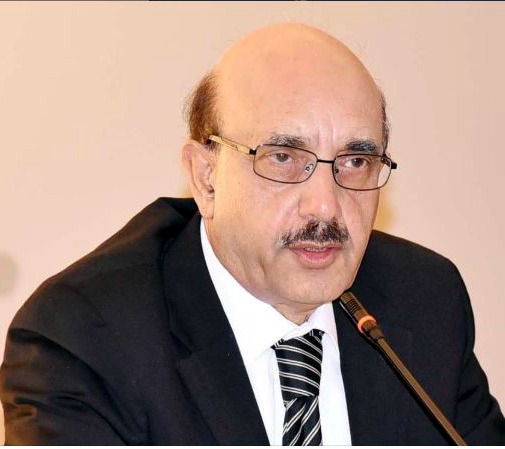ISLAMABAD: Former President of Azad Jammu and Kashmir and ex-Pakistan ambassador to the United States Sardar Masood Khan has denied recent claims suggesting Pakistan was developing intercontinental ballistic missiles (ICBMs). He described these allegations as unfounded and politically motivated.
In an interview with a news outlet, Khan said the narrative appears to be driven by Indian media and intelligence agencies aiming to damage Pakistan’s image and disrupt its ties with the United States. He noted that a recent article in Foreign Affairs mentioned Pakistan’s missile program only briefly, but this was exaggerated by Indian sources into a broader campaign.
“Pakistan’s missile capability is focused on regional defense, especially deterrence against India,” Khan said. He emphasized that Pakistan’s longest-range missile, the Shaheen-III, has a range of 2,750 kilometers and is not meant for global targets. “We have not developed, nor do we intend to develop, ICBMs,” he added.
Khan also criticized India’s missile development, particularly the Agni-V and the reportedly under-development Agni-VI, which have ranges that potentially exceed 9,000 kilometers. He questioned why the U.S. has not raised concerns about these developments.
He said that if India is a strategic partner of the U.S., Washington should seek clarity on the purpose of such long-range systems, which could theoretically reach American territory.
Khan further rejected any suggestion that Pakistan is targeting the U.S. with its missile program. He pointed to Pakistan’s history of cooperation with Washington, including during the Cold War and in counterterrorism efforts. In contrast, he said Indian political rhetoric has often treated the U.S. as an adversary while maintaining close ties with Russia and China.
He highlighted India’s stance during the Ukraine conflict and participation in BRICS initiatives as signs of shifting alignment away from the West.
Khan also referred to recent diplomatic developments, including an upcoming visit by Indian External Affairs Minister S. Jaishankar to Washington. He suggested this may be aimed at influencing U.S.-Pakistan relations, which have seen renewed momentum through military deals and diplomatic engagement.
Mentioning a recent meeting between Pakistan’s army chief, General Asim Munir, and former U.S. President Donald Trump, Khan said the discussions covered defense, trade, and investment in minerals like lithium and copper.
On Kashmir, Khan welcomed what he described as increased U.S. attention to the issue. He said Trump’s past offer to mediate had brought the dispute back into international focus.
Concluding his remarks, Khan warned that India’s domestic political challenges could lead to increased regional tensions in the coming year. He urged Pakistan to stay alert and maintain active diplomacy.
“Pakistan’s global image is improving,” he said. “We are being seen as a responsible and constructive player on the world stage.”


Comments are closed.